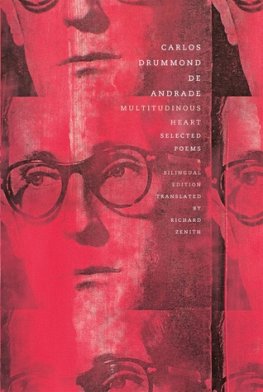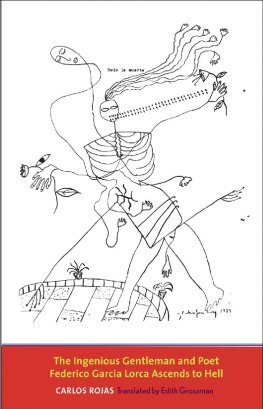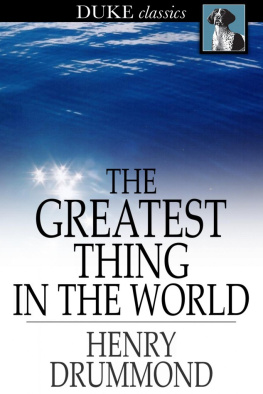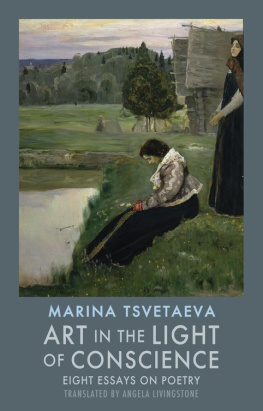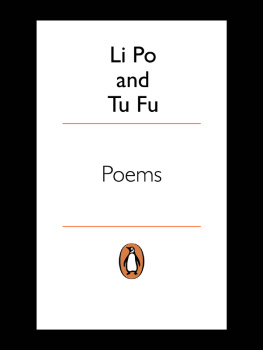Carlos Drummond de Andrade
Multitudinous Heart
In his last interview, given just weeks before his death in 1987, Carlos Drummond de Andrade (droo-MOHND djee ahn-DRAH-djee) said that his long and prolific career of poetry was not motivated by literary ambition but by the need to express sensations and emotions that troubled my spirit and caused me anguish. Poetry, he explained, had served him as an analysts couch. It is hard to take seriously his denial of literary ambition, since as a young man his goal in life was clearly to write the finest poetry he could write. Once he became established as Brazils greatest living poet (his only competitor for the title was Joo Cabral de Melo Neto, 19201999), he could relax, and the decreased poetic tension of his later work shows that he did relax. But what about the notion of poetry as self-expression and psychological self-analysis? It is a notion not necessarily in conflict with the idea of poetry as an artistic pursuit. For a man like Drummond, naturally taciturn, art was perhaps the ideal medium for exploring and expressing his feelings. Those feelings were not simply expressed, however; they were transformed. There was a metamorphic relationship between his life and his art.
The abundance of autobiographical information in the work of Carlos Drummond is apparently at odds with four of his recommendations to would-be poets contained in a poem appropriately titled In Search of Poetry:
1. Dont write poems about what happened.
2. Dont tell me your feelings, because [w]hat you think and feel is not yet poetry.
3. Dont reconstruct / your gloomy, long-buried childhood.
4. Dont shift back and forth between / the mirror and your fading memory.
After these and some other caveats, Drummonds poem goes on to stress that poetry is made of words, and only through quiet listening can the poet coax the right ones into the right places. But words, of course, are not just sounds and graphic figures. They stand for things, and this is especially true in the content-rich poetry of Drummond, full of references to events, feelings, and childhood memories precisely the kinds of content his In Search of Poetry rejects. We could try to resolve the discrepancy between his theory and practice by arguing that Drummond treated his own life like so much clay, handling it with objective detachment. Reading his work, we find that there is indeed artistic detachment, but also an unabashedly subjective narrator who is often bursting with pathos.
In another, very different poem about his poetic method, Drummond seems to make room for personal history, feelings, and memories. He describes building an elephant a metaphor for the poem from his scant resources, beginning with some wood / from old furniture / to prop him up (The Elephant). The old furniture presumably includes the poets experiences, his life story placed at the service of poetry. But this service is not self-effacing, as if autobiography were an indifferent raw material. On the contrary: the self matters immensely. In The Elephant and in Drummonds poetry generally, the self is discreetly but sprawlingly everything and everyone. The poets relationship to himself, to his family, to the supernatural, to his poetry, to the world at large, and to his readers is all of a piece all the same relationship. Autobiography becomes omnibiography. That is what makes his work uniquely compelling.
The vast and multifaceted nature of Drummonds poetic I is announced in the poem that opens his first book the Seven-sided Poem. In the sixth of its seven stanzas the narrator makes the spectacular claim that however large the world may be, my hearts even larger. On the other hand, the first stanza has a twisted angel warning him at birth that he would be a misfit in life. His awkwardness is both social and spiritual, since he has difficulty getting on with other people and feels abandoned by God, whose absence he directly addresses in the fifth stanza. Elsewhere in the poem he explains how life overwhelms him. He is troubled by the urgency of the sexual impulse, baffled by the human diversity all around him, embarrassed by the sentimentality that spontaneously wells up in him, and he knows that poetry his refuge is not an adequate solution. Perhaps it is his overly large and sensitive heart that condemns him to be forever out of step with the world. Identified as Carlos in the third line, the poems first-person narrator perfectly resembles Carlos Drummond de Andrade, but he is also a kind of everyman, as suggested by the poems middle stanza, where he is referred to in the third person as the man behind the glasses and mustache.
Childhood, the second poem from Drummonds first book, recalls how he spent many an afternoon reading one of his favorite adventure stories, Robinson Crusoe, in the shade of the mango trees while his mother sewed, his baby brother slept, the maid brewed coffee, and his father rode over the fields on horseback. Looking back, the narrator realizes that his story was more beautiful than Robinson Crusoes. It is not the past, not memory per se, that the poet exalts, but experience. Books are secondary. Life itself is a sufficient resource for making poems.
The second stanza of Childhood is illustrative of Drummonds poetic technique in his early work:
In the white light of noon, a voice that learned lullabies
in shanties from the slave days and never forgot them
called us for coffee.
Coffee as black as the old black maid,
pungent coffee,
good coffee.
Words are used like paint to vividly evoke a scene, presenting a sharp contrast between light and dark, but the poem does not appeal only to our sense of sight. We can smell and taste the coffee, and we can hear those lullabies perhaps sung by the maid while doing her chores, and most certainly when the narrator was still a baby and she rocked him to sleep. Drummond, a kind of literary Cubist, apposed and intersected temporal as well as spatial planes. Childhood shifts between the present time of remembrance, the time the poet was a boy with a baby brother, the time he himself was a baby, and the time before he was born, when the maid was a small child and learned songs that would later be woven into the narrators childhood. The maids past as a young slave a growing-up story that contrasts with the narrators own is as important to the poem (and to the life it describes) as the story of Robinson Crusoe mentioned in other stanzas. The stories are interconnected, and the poem is about the experience of childhood in general, not only about Drummonds. It all makes for a deceptively simple, concise, and yet wide-open narrative.
In another early poem, Multitudinous Heart, the poet feels desperately out of place in downtown Rio de Janeiro, so different from the landlocked state of Minas Gerais where he grew up and was still living. Lonely and depressed amid the flashing lights, the young traveler vaguely contemplates suicide but is suddenly gripped by the excitement of the coastal city, then the nations capital. He feels the ocean waves pounding in his own chest, and the poem ends with these short and simple, yet enormous, lines: the city is me / the city is me / I am the city / my love. Once more the poetic I expands far beyond the bounds of Carlos Drummond de Andrade. The narrator, the teeming city and my lovewhich can mean both the love he has to give and the object of that love are juxtaposed like infinitely reflecting mirrors, making the moment of epiphany reverberate in a crescendo. Drummond was a master poet of the ordinary sublime.
* * *
A product of the Brazilian rural elite, Carlos Drummond de Andrade was born on October 31, 1902, the fifth of six children to reach adulthood (eight others died in infancy). His mother gave him the Drummond name, passed down from Scottish ancestors. His father owned and operated four ranches, but the town where they lived Itabira was known as the iron capital of Minas Gerais. When Drummond reports, in his Confessions of a Man from Itabira, that the sidewalks of his hometown were ninety percent iron, he was not exaggerating by much. And when he revisits the town as an adult and notes that [t]he mountain was taller back then (in Journey Through the Family), he means it literally: the iron-rich Cau Peak had been decapitated and transformed into a mining pit. It was minerals gold and diamonds that first attracted settlers to Minas Gerais. Then came cattle ranchers and coffee growers. The people from Minas have always been known for being reserved, cautious, proud, and fiercely independent. Carlos Drummond fit the stereotype.

